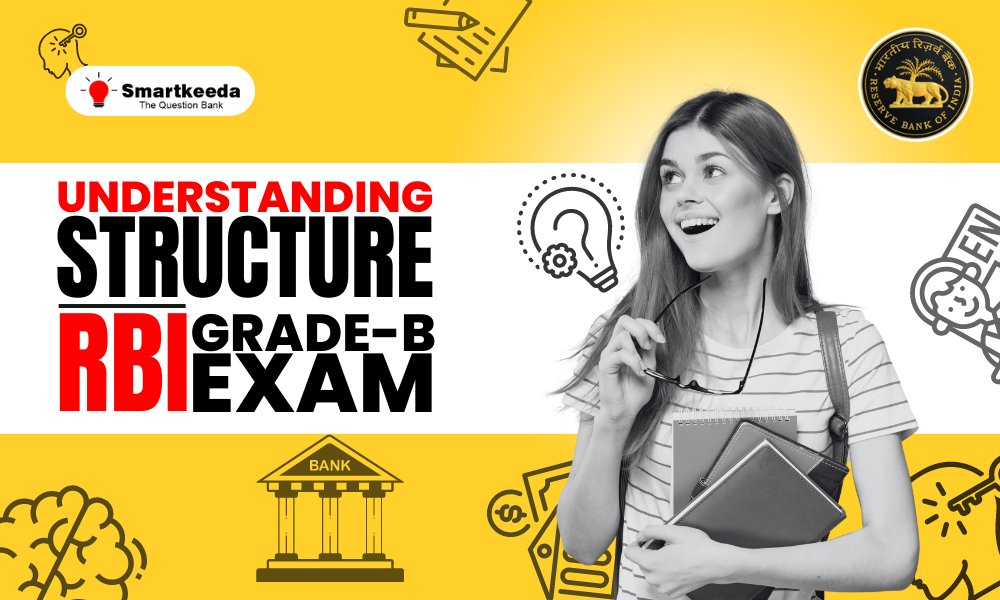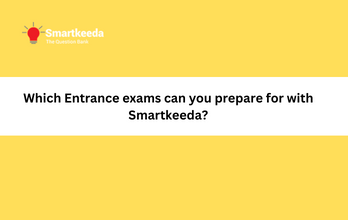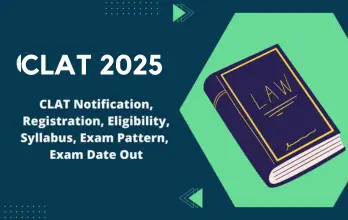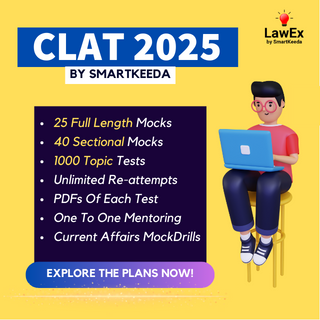
The RBI Grade B job presents a golden opportunity for banking aspirants seeking a prestigious and rewarding career in the banking sector. It offers a chance to work with the Reserve Bank of India, the country's central banking institution, and actively participate in shaping the nation's economic policies. Apart from an attractive salary package, officers receive numerous allowances and benefits such as housing facilities, medical insurance, and retirement benefits, RBI Grade B officers enjoy job security and opportunities for career growth within the RBI.
In this article, we will explore valuable insights and strategies on how to become an expert in RBI Grade-B Exam, paving the way for your success in this prestigious banking examination.
Understanding the Structure of the RBI Grade B Exam
The selection process for RBI Grade B officers is highly competitive and rigorous. It typically involves a national-level examination that assesses candidates' knowledge of economics, finance, and related subjects. The examination is followed by an interview and a final selection based on merit. Successful candidates undergo a comprehensive training program to enhance their knowledge and skills, ensuring they are well-prepared to handle the diverse responsibilities of the position.
Let us understand the structure of the RBI Grade B Exam in detail:
Phase I
The RBI Grade B exam is conducted in two phases, Phase I, and Phase II, followed by an interview. Phase-I is an objective type examination with Multiple Choice Questions (MCQs) and includes four modules: General Awareness, English Language, Quantitative Aptitude, and Reasoning. Phase I of RBI grade B will be qualifying in nature, i.e., marks obtained in this phase will not be considered while preparing the final merit list. The candidates who qualify the Phase I based on the cut-off decided by the Board will be invited for the Phase II exam.
| S No. | Subject | No. of Questions | Maximum Marks | Duration |
| 1. | General Awareness | 80 | 80 | 25 minutes |
| 2. | Quantitative Aptitude | 30 | 30 | 25 minutes |
| 3. | English Language | 30 | 30 | 25 minutes |
| 4. | Reasoning | 60 | 60 | 45 minutes |
| Total | 200 | 200 | 120 minutes | |
Phase II
The second phase of the RBI Grade B exam consists of 3 papers (Paper-I +Paper-II +Paper-III). The papers will be in Multiple Choice Questions (MCQ) pattern (except Paper-I) – viz. Paper-I on English (writing skills); Paper-II – Economic & Social Issues and Paper-III – (optional subjects) – Finance and Management/ Economics/ Statistics.
You must try to avoid guess attempts in the RBI Grade B exams as there would be a penalty for wrong answers. For each incorrect answer marked, a penalty of 1/4th of the marks assigned to that particular question will be deducted. Therefore, it is crucial to focus on answering questions accurately rather than taking random guesses, as incorrect responses can result in a deduction of marks and potentially lower overall scores.
The final selection will be determined through merit lists, which would combine the marks obtained in Phase II (Paper-I + Paper-II + Paper-III) with the interview scores.
Here is the detailed structure of RBI Grade B Phase II:
| Paper Name | Type of paper | Number of Questions | Duration | Maximum Marks |
|
Paper–I Economic & Social Issues |
50% Objective + 50% Descriptive | 30 Objective Questions & 6 Descriptive Questions of which 4 have to be answered | 30 Minutes + 90 Minutes = 120 minutes | 50 + 50 = 100 Marks |
|
Paper-II English – Writing Skills |
Descriptive Typing and the answers will need to be typed with the help of a keyboard | 3 (Descriptive) | 90 Minutes | 100 Marks |
|
Paper -III Finance and Management |
50% Objective + 50% Descriptive | 30 Objective Questions & 6 Descriptive Questions of which 4 have to be answered | 30 Minutes + 90 Minutes = 120 minutes | 50 + 50 = 100 Marks |
- You can practice RBI GRADE P2 ESSAY WRITING here
- You can practice for the Objective Paper of RBI Grade B P2 Finance & Management here!
- You can practice for the Descriptive Paper of RBI Grade B P2 Finance & Management here!
Interview
This is the final step of the selection process that plays a significant role in determining the outcome, as the final selection is based on the combined score of the interview and the Phase-II examination.
The interview carries a weightage of 20% in the final selection, while the remaining 80% is based on the marks obtained in the Phase-II exam. The interview is worth 75 marks and assesses candidates on various aspects, including their knowledge of economics and finance, communication skills, problem-solving abilities, and suitability for the role of an RBI Grade B Officer.
Mastering the Content and Syllabus of RBI Grade Exams
A strong command over the syllabus allows for effective time management, and make a strategic plan to build a solid foundation of knowledge and understanding. It also allows you to identify the topics that carry the highest weightage in the RBI Grade B exam so that you can strategically allocate your time and efforts toward these important areas. You can thoroughly understand the syllabus of the RBI Grade B Exam here:
RBI Grade Phase I Syllabus
The syllabus for the RBI Grade B Phase 1 exam is similar to the preliminary exams of other bank exams. It consists of four main sections:
1. English Language: This section tests your proficiency in English grammar, vocabulary, comprehension, and language skills.
2. Quantitative Aptitude: It evaluates your mathematical and numerical ability, including topics such as number systems, data interpretation, simplification, averages, percentages, time and work, and profit and loss.
3. Reasoning Ability: Here, your logical reasoning, analytical, and problem-solving skills are tested. It includes topics like coding-decoding, puzzles, seating arrangement, syllogism, blood relations, and verbal and non-verbal reasoning.
4. General Awareness: This section assesses your knowledge of Monetary Policies, Economic Terms, Current Affairs, Financial & Economics News, Government Schemes, Agreements, Banking & Financial Awareness.
RBI Grade B Phase 2 Syllabus
The RBI Grade B Phase 2 exam holds immense importance as the score obtained in this examination determines your rank in the final selection process. Therefore, it is essential for you to have a solid grasp of the syllabus and devote sufficient time to studying and preparing for each subject thoroughly.The RBI Grade B Phase 2 syllabus differs significantly from other bank exams, requiring candidates to go the extra mile in their preparation. The Phase 2 Examination consists of three sections: Economic & Social Issues, Finance, and Management. It is a subject-centric exam that evaluates candidates on their understanding of economics, finance & management, social issues, and other related fields.
You should refer to the official syllabus and study materials provided by the Reserve Bank of India to ensure they cover all the relevant topics and effectively prepare themselves for this crucial phase of the selection process.
• Download RBI Grade B Phase 2 official syllabus pdf here!
Developing Effective Study Strategies for Multiple-Choice Questions
Success is not just about having a dream; it's about developing an effective strategy to turn that dream into reality.
Developing an effective strategy is crucial to ace the RBI Grade B exams, especially when there is a limited number of vacancies and the level of difficulty is higher compared to other bank exams. With strong competition, it becomes essential to have a well-thought-out plan to crack this exam. By following a structured strategy and maintaining consistent effort, you ace the RBI Grade B Exam on your first attempt.
1. Analyze Previous Year Papers: This is the best method to understand the format of an exam and assess your current level of preparation. By reviewing previous years' question papers, you can gain insights into the exam pattern, question types, and level of difficulty of the Multiple-choice questions asked in the RBI Grade B exam.
2. Divide your study time: To begin with, you should divide your study time wisely, ensuring that you dedicate enough hours to each section based on its weightage and your personal strengths and weaknesses. Each section of RBI Grade B Phase I and Phase II exams contain multiple-choice questions (MCQs), therefore it is crucial to practice solving multiple-choice questions (MCQs) regularly to improve your speed accuracy, and time management while attempting these questions.
3. Enhance Subject Knowledge: RBI Grade B Phase 1 also requires knowledge of banking and finance to score well. While RBI Grade B Phase 2 exam is particularly focused on subject-specific topics like Finance & Management, Economic & Social Issues. Starting your preparation for subject-specific topics parallelly right from the prelims stage will help you to develop a strong foundation and gain a deeper understanding of the concepts.
4. Learn Time Management: The seemingly easy nature of multiple-choice questions (MCQs) in RBI Grade B exams can be deceiving, as they can prove to be fatal if you lack familiarity and practice in attempting them. If you are unable to solve any question in the first go, mark it and move on to the next question without wasting a second. Once you are done with all the easy questions, move on to the marked ones.
Practicing with Sample Questions and Previous Year Papers
Knowledge without practice is like a seed without soil; it may hold great potential, but it will never bloom. It is through practice that we put our knowledge to the test, transforming theory into tangible results.
Practicing with RBI Grade B sample questions and RBI Grade B previous year papers and mock tests is of utmost importance while preparing for the RBI Grade B exam as it is the only way to familiarize yourself with the RBI Grade B exam structure, Question pattern, and the difficulty level of this exam, thus saving yourself from the fear of the unknown.
Smartkeeda provides you the platform where you can download and solve the RBI Grade B Sample questions, and attempt RBI Grade B Exam Pattern Based Mock Tests to gain valuable insights into the structure and format of the exam. By attempting these questions, you can become acquainted with the types of questions asked, the time constraints, and the overall level of difficulty. This practice allows you to assess your preparedness and identify areas that require improvement.
You can immerse yourself in the world of practice by accessing direct links to download PDFs of sample questions at Smartkeeda and begin your offline practice sessions completely free of charge.
• Download RBI Grade B Economics & Social Issues sample questions here!
• Download RBI Grade B Reading Comprehension sample questions here!
• Download RBI Grade B Critical Reasoning sample questions here!
• Download RBI Grade B Quantitative Aptitude sample questions here!
• Download RBI Grade B Data Interpretation sample questions here!• Download RBI Grade B Data Sufficiency sample questions here!
• Download RBI Grade B Puzzles sample questions here!
Utilizing Online Resources and Mock Tests
Mock tests possess a unique capacity to help you in cracking the RBI Grade B exams, unlike any other study resource. They are an indispensable tool to simulate the actual exam environment, allowing you to assess your strengths & weaknesses, improve time management skills, provide a realistic exam experience, and develop effective exam strategies.
Therefore, if you aspire to crack the RBI Grade B exam on your first attempt, you must harness the power of online resources and mock tests to elevate your preparation and fulfill your dream of becoming an RBI Grade B officer.
You can practice for the different phases of the RBI Grade B exam with the RBI Grade B mock tests available at Smartkeeda and enhance your understanding of the exam pattern and syllabus for each phase, refine your problem-solving abilities, and strengthen your overall exam-taking strategy.
Here are the direct links to RBI Grade B phase I & II mock tests.
• Attempt RBI Grade B Phase I Mock test here!
• Attempt RBI Grade B P2 Economics & Social issues (Objective Paper) here!
• Attempt RBI Grade B P2 Economics & Social issues (Descriptive Paper) here!
• Attempt RBI Grade B P2 Finance & Management (Objective Paper) here!
• Attempt RBI Grade B P2 Finance & Management (Descriptive Paper) here!
• Attempt RBI GRADE P2 ESSAY WRITING here!
Staying Updated with Current Affairs and Banking Awareness
Banking awareness and current affairs hold immense significance in every bank exam including the RBI Grade B exam. If you aspire to clear this prestigious examination, it is crucial to recognize the importance of banking awareness and current affairs as it is the most scoring topic in every phase, including the interview. A strong foundation in banking knowledge allows you to navigate through this each phase with ease by improving your overall score and places you ahead in the merit list.
Smartkeeda Current Affairs Mock Drills offer a valuable resource for staying updated with the most important questions from every month. With around 12 Current Affairs mock drills per month, containing 50 multiple choice Current Affairs Questions in each quiz, we ensure that you are well informed about important current events.
Before the launch of these Mock Tests, we provide you with a MockDrill PDF that includes "News Summary & Smart Points" for each test. Our team of experts prepares these Smart Points, serving as crucial notes that save you time and effort. Additionally, our Monthly Combo PDF allows you to revise all the news multiple times. With the added advantage of "unlimited re-attempts" on each Mock Test, we empower you to ace your current affairs preparation for the RBI Grade B exam.
• You can attempt Current Affairs MockDrill for May 2023 here!
Moreover, you should regularly read newspapers such as Economic Times, The Hindu, and Business Standard to stay updated with banking and financial awareness. These newspapers will provide you with the sought information regarding economic news, banking developments, policy changes, and financial updates that are relevant to the RBI Grade B exam.
• Banking and Financial Awareness Questions Quiz here!

Author : Anjali
Hi, I am Anjali, a Probationary officer at a leading Public Sector Bank. With a passion for helping aspiring bankers, I have embarked on a journey to share my knowledge and insights through informative blogs. Having successfully cleared various bank exams myself, including IBPS PO XII, I understand the challenges and the importance of effective preparation. Through my blogs, I aim to provide valuable tips, strategies, and resources specifically tailored for bank exams, empowering the aspirants to achieve their dream of a successful banking career.
FAQ’s
To be eligible for the post of RBI Grade B officer, a candidate must have attained the age of 21 years.
Yes! The RBI Grade B exam does have an attempt limit. As per the official notification, candidates belonging to the General category can attempt the exam a maximum of six times. However, there are there is no attempt limit for candidates belonging to reserved categories, such as OBC, SC, ST, and PwBD.
Yes, there is a negative marking scheme in the RBI Grade B exam. For every incorrect answer, 1/4th of the marks assigned to that question will be deducted as a penalty.
Yes, Smartkeeda provides descriptive mock tests for the RBI Grade B Phase 2 exam. These mock tests are designed to help you prepare effectively for the specific subjects covered in Phase 2, such as Economic and Social Issues, & Finance, and Management.





